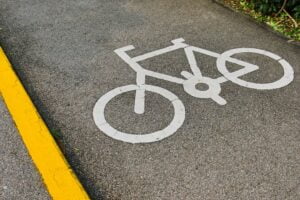
Could e-scooters become the next “must have” mode of commuter transport?
E-scooters could soon become the ‘norm’ on the streets of towns and cities throughout the UK, leading to a demand for safer and secure storage for commuters.
The UK government is introducing trial areas where the use of electronic motor scooters will be permitted. From 4 July 2020 local authorities in England have been offered the opportunity to trial rental scooter schemes on roads, streets and cycle paths.
The governments of Wales, Scotland and Northern Ireland are also considering such a move.
Currently, e-scooters are not legal on public streets, paths and cycleways. They are considered as Personal Light Electric Vehicles (PLEVS) and are classified similar to motor vehicles.
Changing laws for e-scooters
But private companies are being invited to offer rental scooters in urban areas, similar to the rent-a-bike schemes, such as the famous ‘Boris Bikes’ in London. And so, the government is looking into changing the existing law that dates back to 1832.

Scooter racks Landmark Street Furniture
If the trials are successful, the laws on their use could be relaxed further, allowing more e-scooter users on to the streets. And the mode of transport is likely to be adopted by commuters who will be keen to use them to travel between existing transport hubs, such as railway stations and car parks, into their workplaces.
“Most people don’t realise that e-scooters have been illegal to use on public roads and paths. But sales have rocketed and the government can see that as they attempt to allow more modes of safe transport post Coronavirus, e-scooters are one method that could be adopted in towns and cities,” said Robert Hawgood, Managing Director of Landmark Street Furniture, one of the leaders in the provision of secure bicycle storage systems.
Adapting transportation policies for cycling and e-scooters
“The governments nationally, regionally and locally are having to adapt their transport policies and provision in the wake of the coronavirus situation. They are urging people to not use public transport for fear of the virus spreading.
“That means alternatives, such as cycling, have become suddenly popular. Sales of bicycles surged by nearly 200 per cent during the lockdown. Many of these have been workers wanting to cycle to work, as well as leisure users.
“They have also created ‘pop-up’ cycle lanes and wider pedestrian area to cater for social distancing.”
So, what does that mean?
“If the trials are successful, we’re likely to see more e-scooter rental schemes springing up throughout the country. It could also mean the relaxation of private e-scooter use. If this happens, then much like cycling there will be a need for places to park and store them.

Cycle lane
“E-scooters are not cheap and any user, such as a commuter, will want to have somewhere to store them – securely. As with cycle storage, there is a range of options, from retrofitted cycle racks and systems to external and street-based bicycle racks and canopies.”
Landmark Street Furniture has already launched a range of dedicated scooter racks. Similar to bicycle racks, they allow scooters, such as e-scooters, to be parked and locked securely.
The racks can cater for one to 20 in capacity and can be installed into new and existing streetscapes, buildings or public areas.
Increased demand for cycle and e-scooter storage
“We are going through a rapid change in the way people travel locally. The use of public transport, such as trams and buses, is likely to be in place for some time. And as people adapt to new ways, they are less likely to return to their old modes of transport,” said Robert.
“That’s why the installation of such scooter racks, along with cycle racks, is important for the long term. To attract more people to use greener and more environmentally friendly ways of travelling, we have to be able to offer secure storage at their destination.
“Employers, local authorities, universities, property developers and others will need to introduce such systems either as part of a planned project or into an existing architectural environment.”
More details about Landmark Street Furniture and its range of cycle and e-scooter storage systems can be found at www.landmarkstreetfurntre.co.uk or email sales@landmarkstreetfurniture.com or telephone 01686 689 198.
